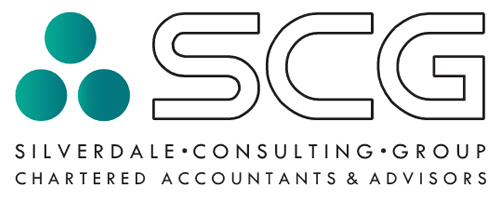Is your business drowning in debt? Do you continuously ask yourself where your profits seem to go every month? As a team of chartered accountants who offer small business bookkeeping in Melbourne, we see this all the time. At the end of the day, a business’ finances all come down to the business owner’s financial habits. And in the interest of healthy finances, it’s always a good idea to look at what others have done to achieve success. Through this list, you’ll learn some of the smartest financial habits that other business owners practice so that you, too, can take control of your business’ finances.

#1: Regularly review your budget
The secret to success here is to continually review your budget to ensure it aligns with how your business is currently operating. Aim to review your finances with an accountant each month or week. Many other successful business owners have also made a habit of this.
Reviewing your finances is essential to forming a budget that maximises returns. You need to ensure your budget is reflective of your business operations, taking all factors (such as client contracts and productivity levels) into consideration. This will enable you to truly understand the mechanics of your business, and only then will you be able to create a budget that works in your favour.
#2: Intentionally set aside money for taxes and personal income
Being smart with your business’ money is all about anticipating (and planning for) expenses. One of these recurring expenses is, of course, taxes! It can be easy to overlook income taxes when planning, especially with the understanding that they’ll get taken out at some point anyway. But without the right preparation, tax time can be a huge setback for many small businesses. Instead of waiting for tax time to hit, smart and successful business owners typically set aside 30% of your profits in a separate account specifically for taxation.
On top of taxes, don’t forget that your income is another recurring expense. Although you don’t necessarily need to send yourself a payslip, ensure you are setting aside money for personal income at regular intervals. This will help to separate your business’ finances from your personal ones, which is another key financial habit of successful business owners.
#3: Use deductions and tax write-offs to your advantage
Financially savvy business owners know all their tax deduction entitlements from back to front. Whether you run your small business from home or you travel for work, you could be eligible for a number of deductions come tax time.
Though deductions may not seem substantial on their own, as they accumulate over time you could find yourself saving a good percentage of your business’ revenue. Depending on the type of deduction you’d like to claim, you may need to keep a record of specific activities or costs incurred, so it’s important to familiarise yourself on the requirements first.
#4: Prioritise minimising unnecessary debts
Not all debt is necessarily a bad thing. After all, when starting a small business, often you’ll need to take on short-term debt to see success in the long run.
However, that doesn’t mean you should ignore your debts entirely. In fact, successful business owners do quite the opposite: they make proactive attempts to reduce these debts. Over time, chipping away at your debt prevents it from accumulating, ultimately draining less from your business.
#5: Keep track of (and understand) your cash flow
All successful business owners have a firm understanding of the way their business operates – including their expenses, income, and projected growth. This is how a budget is created, after all!
Understanding your cash flow is only the first step, however. What’s most important – and valuable – is the records of your cash flow that many successful business owners keep and categorise rigorously. Why? Because not only are these records essential during tax time, but they can also put you in a position to receive deductions and write-offs where appropriate.
Searching for small business bookkeeping in Melbourne?
Professional financial help can prove to be the most powerful tool for all small business owners. Not only will business advisors be able to keep track of your finances, but they’ll also be able to provide cash flow forecasts, strategic financial planning, and valuable taxation advice.
Silverdale Consulting Group provides professional financial services (including small business bookkeeping) in Melbourne. Our team has over 40 years of combined knowledge and experience within the accounting and finance industry, and we are well-equipped to assist with your business’ financial needs. We specialise in business advisory services, tax compliance, and small business bookkeeping in Melbourne.
Want to find out more about small business bookkeeping in Melbourne? Get in touch with our experienced accountants today on (03) 9497 5885.
